Are logistics expenses eating into your net sales? It’s time to harness logistics intelligence for a competitive edge. Here’s your guide to the top logistics intelligence software solutions of 2024, specifically designed for online retailers and 3PL providers aiming for peak efficiency and market dominance.
The importance of logistics intelligence in today’s e-commerce landscape
Painful fact in the e-commerce sector is that logistics expenses represent 15-20% of net sales. To stay competitive and efficient, integrating real-time data analytics is essential for optimizing logistics and controlling costs.
Nearly a fifth of consumer goods executives recognize the value of machine learning and AI in enhancing logistics. Predictions even suggest that AI will facilitate 95% of customer interactions by 2025.
AI and machine learning provide advanced solutions for inventory management and set new standards in customer service with AI-driven chatbots, ensuring immediate and effective communication.
These technologies also address external challenges like supply chain disruptions.
What is logistics intelligence software exactly?
Logistics intelligence software is a high-tech platform using data analytics to monitor and enhance logistics performance. It collects data from various sources to offer actionable insights into shipping, tracking, and overall supply chain management.
Who needs logistics intelligence software?
Logistics intelligence software is relevant for a broad range of players in e-commerce, especially two specific groups:
Logistics intelligence software for online retailers
For online retailers, logistics intelligence software is vital for overcoming logistics challenges that impact customer satisfaction. By leveraging integrated logistics data, retailers can evaluate carrier performance and make informed decisions in selecting partners.
This software anticipates delays, communicates issues to customers, and automates the resolution of shipping problems, reducing the workload on customer service teams.
Logistics intelligence software for 3PL businesses
Third-party logistics (3PL) providers rely on efficiency and trust. Logistics intelligence software is essential for tracking shipments, managing inventory, and optimizing routes. It helps identify bottlenecks and streamline operations.
With predictive analytics, companies can anticipate and address logistics challenges, enhancing customer trust and confidence in the 3PL provider’s capabilities.
The top 10 logistics intelligence software solutions of 2024
Let’s dive into the top 10 logistics intelligence software solutions for 2024. These platforms stand out for their innovative features, market performance, and positive user feedback.
1. Sendcloud’s Shipping Intelligence (previously Tracey)
Website: Sendcloud
Shipping Intelligence (previously Tracey) is Sendcloud’s suite of data tools that leverage Europe’s largest dataset of shipping events to empower businesses to make informed shipping decisions. .
What makes it different? We include independent and highly reliable delivery predictions, carrier benchmarking, and the ability to manage parcels proactively. You can connect Shipping Intelligence to your current systems through shipping and CS software integrations, or use the API to send shipping data directly to custom systems or data warehouses.
For: Enterprise businesses dealing with multiple carriers in various markets and/or shipping high-value or time-sensitive products
Key features:
- Carrier performance insights benchmarking: Choose the right shipping option for your needs
- Predictive parcel monitoring: Proactive solutions against lost or delayed parcels and delivery predictions based on historical shipping data.
- Carrier contract audit & automated invoice check: Make sure you’re being invoiced the correct amount by carriers.
Pricing: Custom pricing based on business requirements – more info available upon request
Note: While you can access shipping data in dashboards, Shipping Intelligence is an API-first solution that allows you to get the right data to your systems. You also don’t need to process labels with Sendcloud to benefit from Shipping Intelligence.
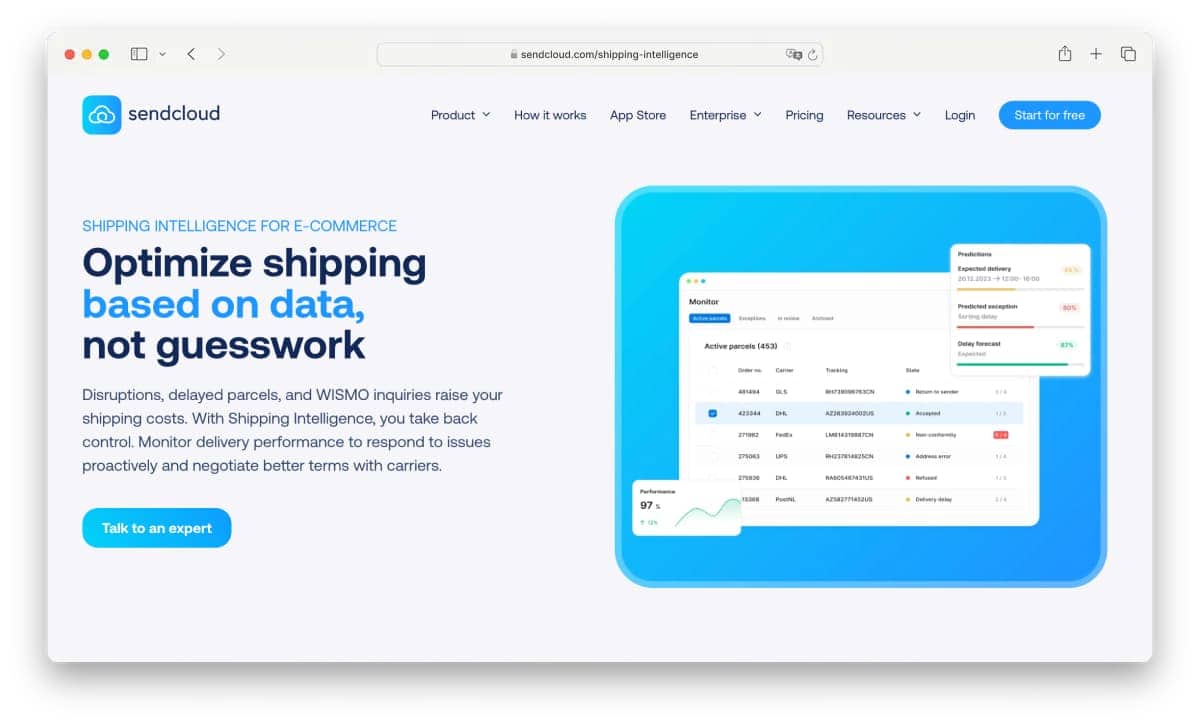
”Tracey’s plug-and-play business intelligence visuals put data from different carriers in a standardized format, making it easy to evaluate a carrier’s performance and compare it to other carriers.” – Roeland Lengers, IT Director Active Ants
2. Sifted
Website: Sifted
Sifted logistics intelligence offers a mix of AI-driven insights, real-time monitoring, and carrier management, used for manufacturing and retail sectors, especially mid-market and small businesses.
Its combination of features aims to boost shipping efficiency and cost-effectiveness.
For: Mid-market and small-business. Primarily manufacturing and retail industries.
Key features:
- Insights & alerts: Continuous monitoring for updates on shipping spending and performance
- Decision support: AI-driven modeling tools for supply chain adjustments, including impact assessments of changes in package sizes or distribution centers
- Carrier management: Tools for managing carrier operations and securing competitive rates
Pricing: SaaS model with tiered pricing plans – more info available upon request
 3. Reveel
3. Reveel
Website: Reveel
Reveel is a smart logistics platform that uses AI to optimize parcel shipping. It simplifies the process of creating and managing shipping agreements, keeps track of contract terms, and enhances recovery services. With features like the Reveel Peer Index, businesses can compare shipping performance and uncover cost-saving opportunities.
For: Targeted at mid-market and enterprise segments
Key features:
- AI-powered monitoring: Automated tracking and comparison of carrier agreements
- Audit and recovery: Identification and recovery of billing overcharges
- Peer benchmarking: Comparative analysis with similar companies for strategic insights
Pricing: Customized based on business needs
 4. FreightWaves SONAR
4. FreightWaves SONAR
Website: FreightWaves SONAR
Sonar offers logistics intelligence with real-time data across all transport modes globally, tailored for diverse industries. It offers advanced benchmarking, analysis, forecasting, customisable dashboards, and API integrations for operational efficiency.
For: Businesses across various industries seeking freight market insights to guide decision-making.
Key features:
- Exclusive data access: Offers timely insights into global freight movements and market trends through near real-time data
- Advanced analytics tools: Provides analysis and forecasting capabilities for market insights
- Customisable integration: Enables enhanced operational efficiency with adaptable dashboards and API integrations
Pricing: Custom pricing based on business requirements
5. Lojistic
Website: Lojistic
Lojistic is a free logistics intelligence and analytics platform that offers tools for reducing shipping costs along with analytics and carrier connectivity. It aims to streamline shipping processes and provide actionable insights for businesses.
For: Businesses exploring cost-effective solutions for optimizing their shipping logistics
Key features:
- Historical shipment data: Provides practical insights based on historical shipment data
- Direct carrier management: Its ‘Carrier Connectors’ feature facilitates direct scheduling, route optimisation, and logistics management with carriers
- Analytics and integration: Offers analytics reports and a customisable API for integration with existing systems
Pricing: Free + add-ons available
 6. 7bridges
6. 7bridges
Website: 7bridges
7bridges offers a three-layered solution for optimizing supply chain management. The Baseline & Benchmarking layer evaluates performance and costs, the Simulation layer explores strategic factors, and the Automation layer streamlines shipping processes for improved efficiency.
For: Global and cross-border e-commerce enterprises
Key features:
- AI capabilities: Uses AI for real-time predictive analytics and scenario testing
- Comprehensive data integration: Provides a unified platform for all supply chain data, enhancing visibility and control
- Customisable AI workflows: Enables the creation of AI workflows tailored to specific supply chain challenges
Pricing: Customized to client needs
 7. Parcel Perform
7. Parcel Perform
Website: Parcel Perform
Parcel Perform is a platform designed to assist e-commerce businesses in improving their logistics and customer experience. It has features like comprehensive carrier integration, AI-driven predictive analytics, and customisable engagement tools, including branded tracking widget and tracking notifications.
For: E-commerce businesses in need of detailed logistics management and enhanced customer delivery experiences.
Key features:
- Carrier integration: Integrates with various carriers, providing logistics tracking capabilities
- Predictive analytics: Uses AI to forecast Estimated Delivery Dates (EDD) and generate logistics insights
- Customisation: Offers a tracking widget and delivery notifications that can be customized according to business and customer preferences
Pricing: Customized to client needs
 8. ShipScience
8. ShipScience
Website: ShipScience
ShipScience is a web-based logistics intelligence platform tailored for e-commerce businesses, focusing on shipping cost optimization and operational efficiency through data-driven insights.
For: E-commerce businesses of all sizes
Key features:
- Automated refunds: Uses algorithms for automatic refund claims on shipping issues
- AI-assisted analytics: Features AI for tracking and refund management
- Tailored dashboard: Offers a customisable dashboard for a unified view of multiple shipping accounts
Pricing: Customized to client needs
 9. DAT iQ
9. DAT iQ
Website: DAT iQ
DAT iQ is a cloud-based analytics tool for freight brokers and shippers, focusing on providing data on freight rates, capacity, and performance analytics. It offers functionalities aimed at improving decision-making in freight logistics.
For: Freight brokers and shippers
Key features:
- RateView analytics: Provides pricing data with accuracy for a wide range of lanes, aiming for up-to-date market insights
- Benchmark analytics: Enables users to compare their freight spending against broader market trends and identify potential risks
- Custom analytics: Offers report customisation and market analysis, including data visualization capabilities
Pricing: Customized to client needs
 10. Auditshipment.com
10. Auditshipment.com
Website: Auditshipment.com
AuditShipment.com is a cloud-based, AI-powered software solution designed for auditing shipping invoices to identify errors like incorrect charges and delays.
It features error detection, predictive analytics for delivery issues, shipment tracking, and integrates with various third-party platforms.
For: E-commerce businesses, retailers needing invoice auditing and shipping optimisation.
Key features:
- Automated invoice error detection: Identifies surcharges, billing, and delivery errors automatically
- Predictive analytics and tracking: Offers insights on potential delivery problems and real-time tracking
- Extensive third-party integrations: Compatible with numerous logistics, accounting, and POS systems
Pricing:
- Basic plan: Free for up to 50 packages/month
- Premium plan: 30% fee for successful refunds + unlimited packages available
 How to choose the right type of logistics intelligence software
How to choose the right type of logistics intelligence software
Selecting the right logistics intelligence software is key to streamlining your shipping operations and saving time. Here’s a quick guide to help you find the perfect match for your business.
Here are key considerations to keep in mind:
1. Areas of logistics operations
Your logistics may span from warehousing to last-mile delivery. Look for software that covers your entire logistical footprint.
For instance, if a large portion of your shipments are cross-border, prioritize software with strong international logistics features, including customs clearance and international freight rate comparisons.
2. Type of industry
Your industry’s specific needs matter. For example, a retailer of perishable goods will benefit from software with advanced cold chain logistics features, like temperature tracking and real-time alerts.
On the other hand, an electronics retailer might need software with robust return and warranty handling capabilities.
3. Compatibility with existing systems
Ensure the software integrates seamlessly with your current tech stack. This minimizes disruption and leverages existing data for actionable insights.
Check if the software can integrate with your Warehouse Management System (WMS), customer service management software, and other crucial tools.
4. Company size
Scalability is essential. For small to medium-sized enterprises (SMEs), simplicity, ease of use, and cost-effectiveness are crucial. Larger enterprises might need more robust, feature-rich platforms that can handle complex supply chains and high transaction volumes without compromising performance.
5. Shipping volumes and types
Consider your average shipping volumes and the variety of shipments. High-volume shippers require software that can process large amounts of data efficiently. If you handle a mix of parcel, LTL (Less Than Truckload), and FTL (Full Truckload) shipments, choose software adept at managing these diverse requirements.
6. Integrations
The best logistics intelligence software should integrate smoothly with e-commerce platforms, marketplaces, and carrier systems. These integrations streamline operations and ensure accurate and timely shipping rate calculations, label printing, and tracking.
Optimize your shipping operations with Sendcloud’s data-driven logistics
Choosing the right logistics intelligence software isn’t about finding a one-size-fits-all solution. It’s about selecting a tool that fits your specific needs and business goals.
By considering these factors, you can leverage software that addresses current inefficiencies and scales with your future demands.
At Sendcloud, we empower online retailers and 3PLs with smart insights and tools to enhance the delivery experience.
By adopting a data-driven approach, you can optimize your shipping operations, provide proactive support, and ultimately boost customer satisfaction, reduce shipping costs, and increase revenue.

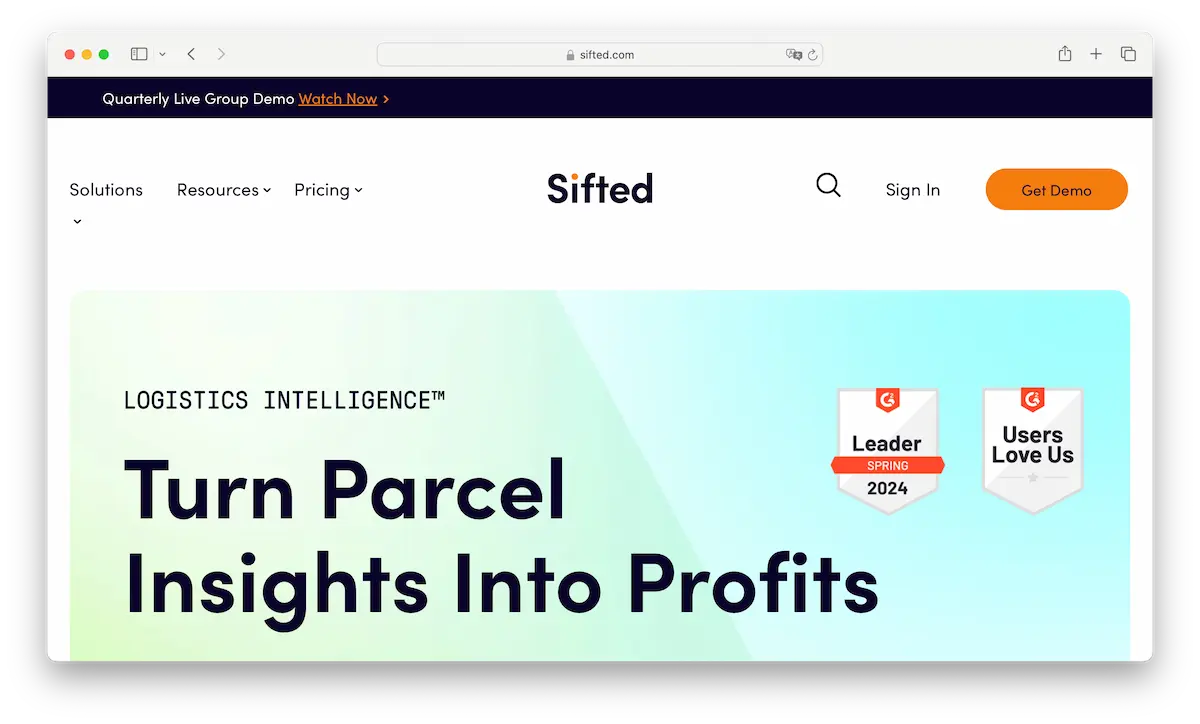 3. Reveel
3. Reveel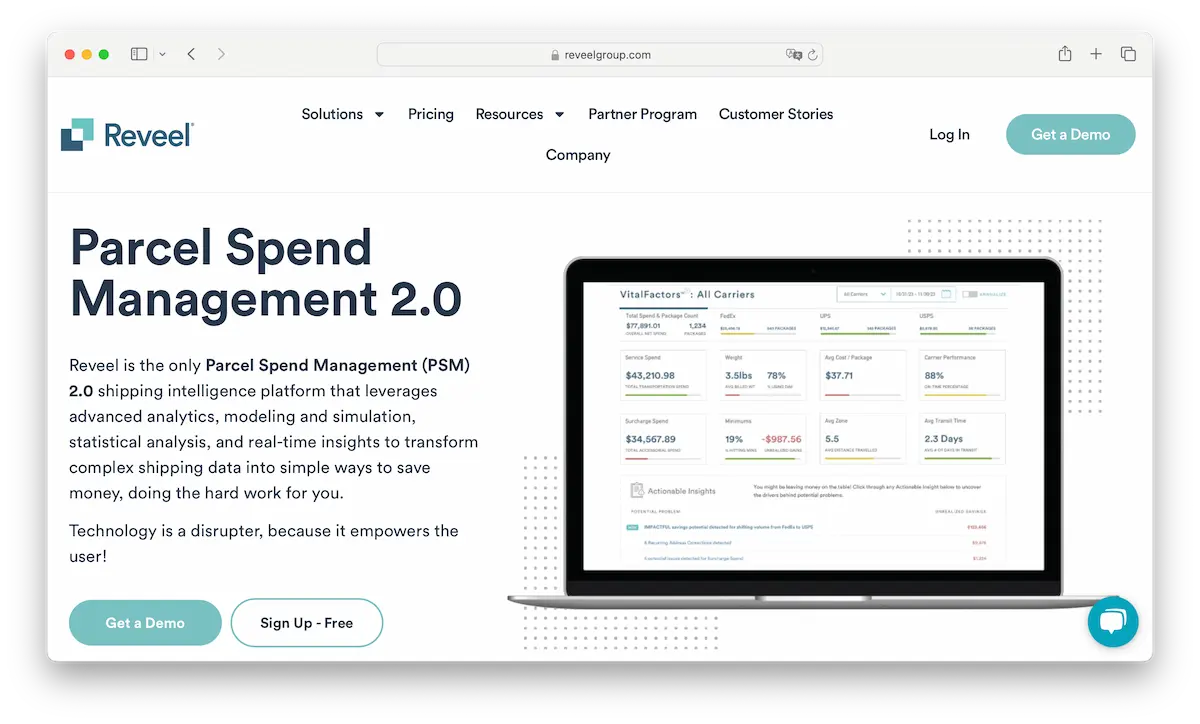 4. FreightWaves SONAR
4. FreightWaves SONAR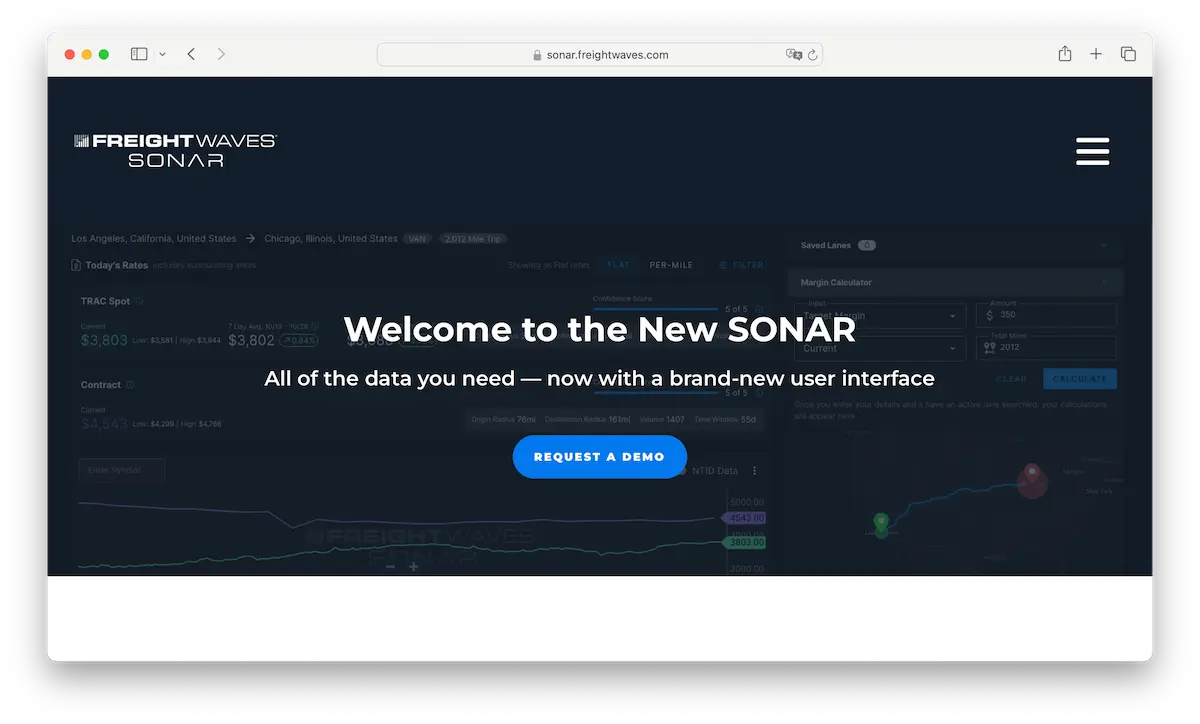
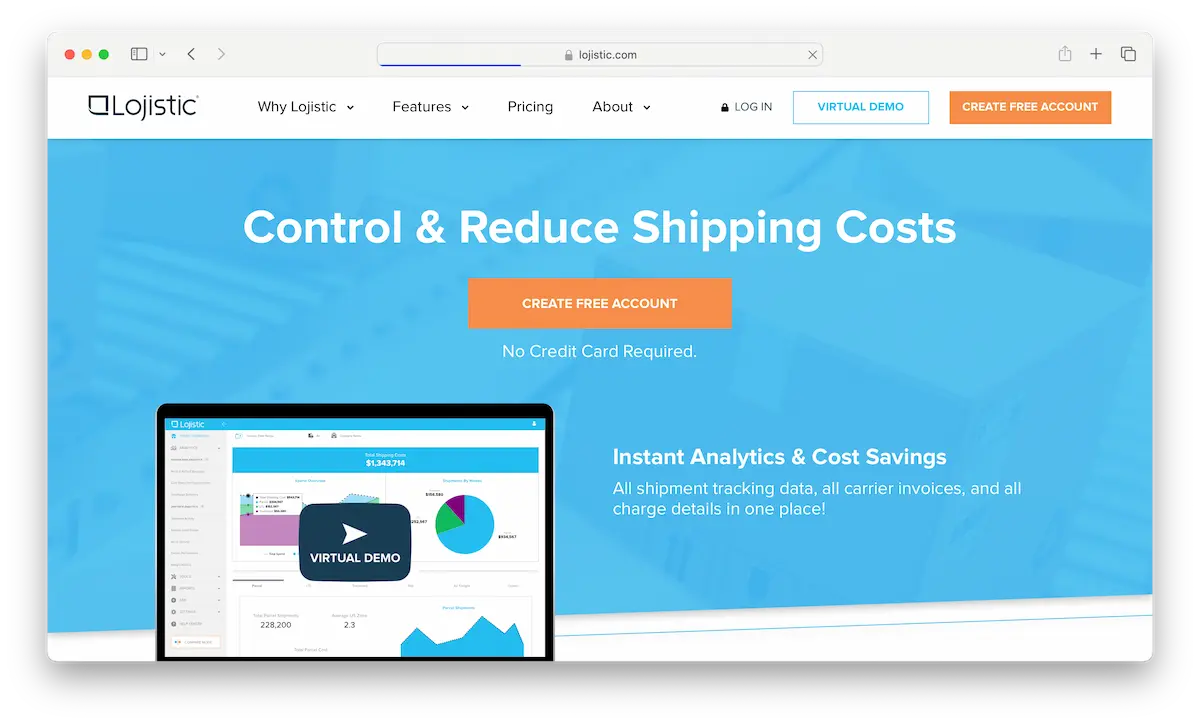 6. 7bridges
6. 7bridges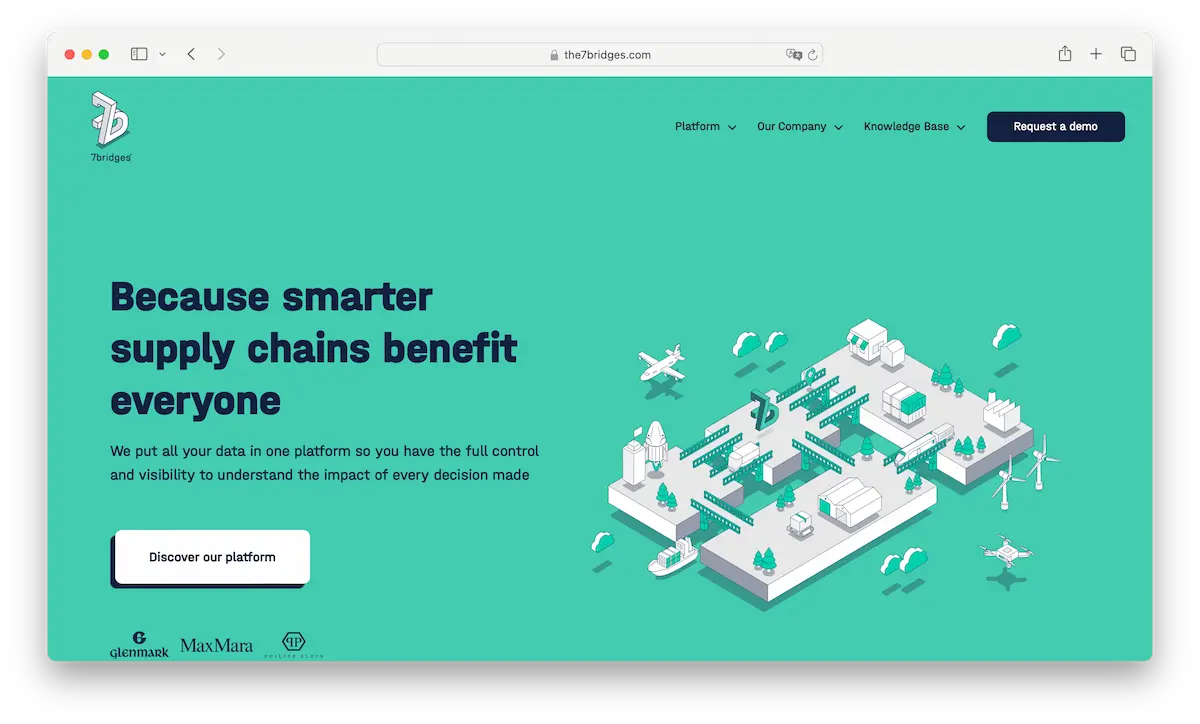 7. Parcel Perform
7. Parcel Perform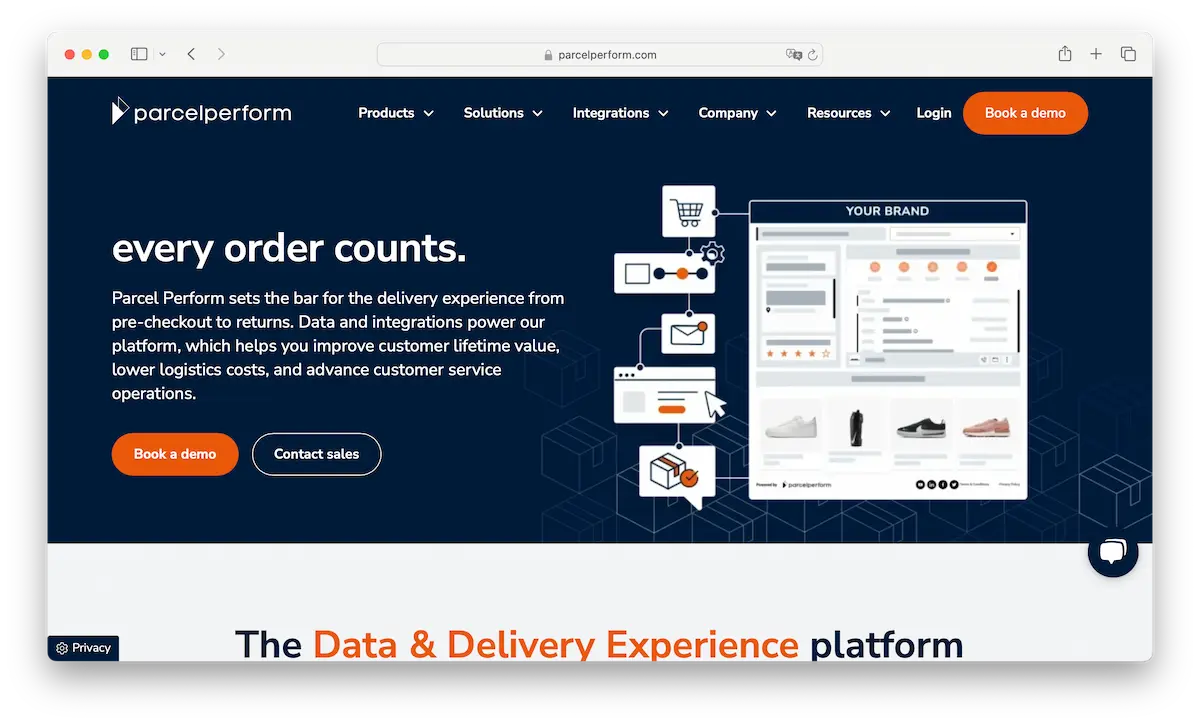 8. ShipScience
8. ShipScience 9. DAT iQ
9. DAT iQ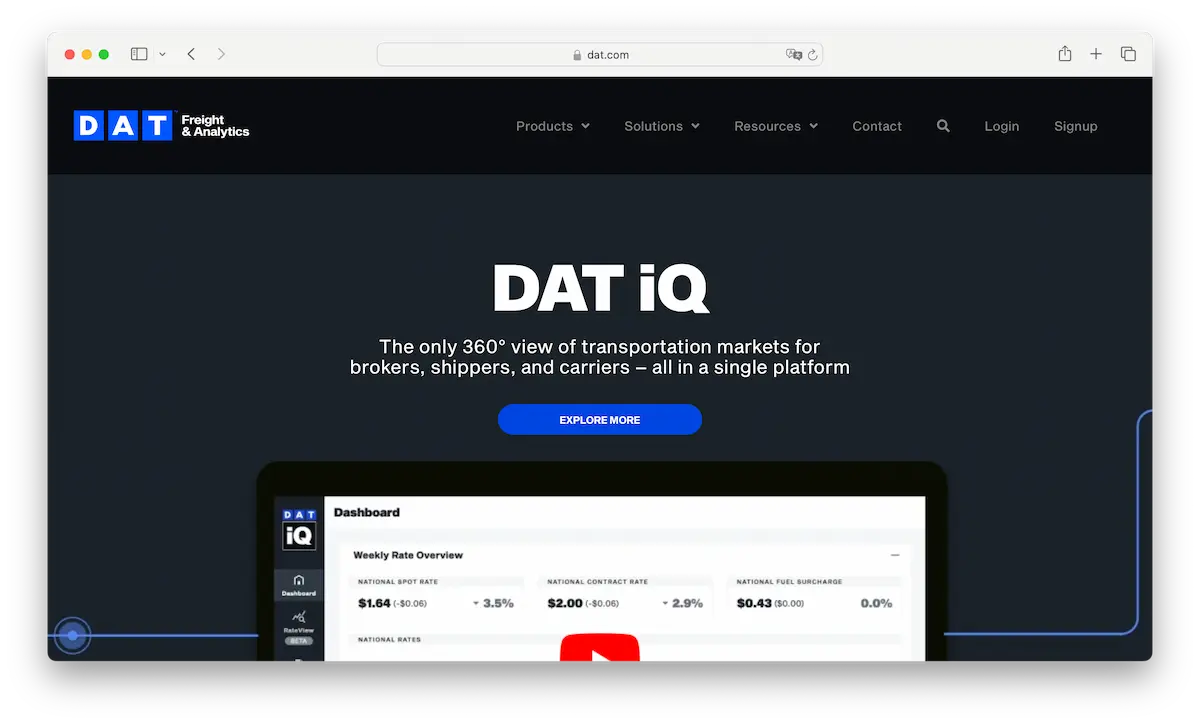 10. Auditshipment.com
10. Auditshipment.com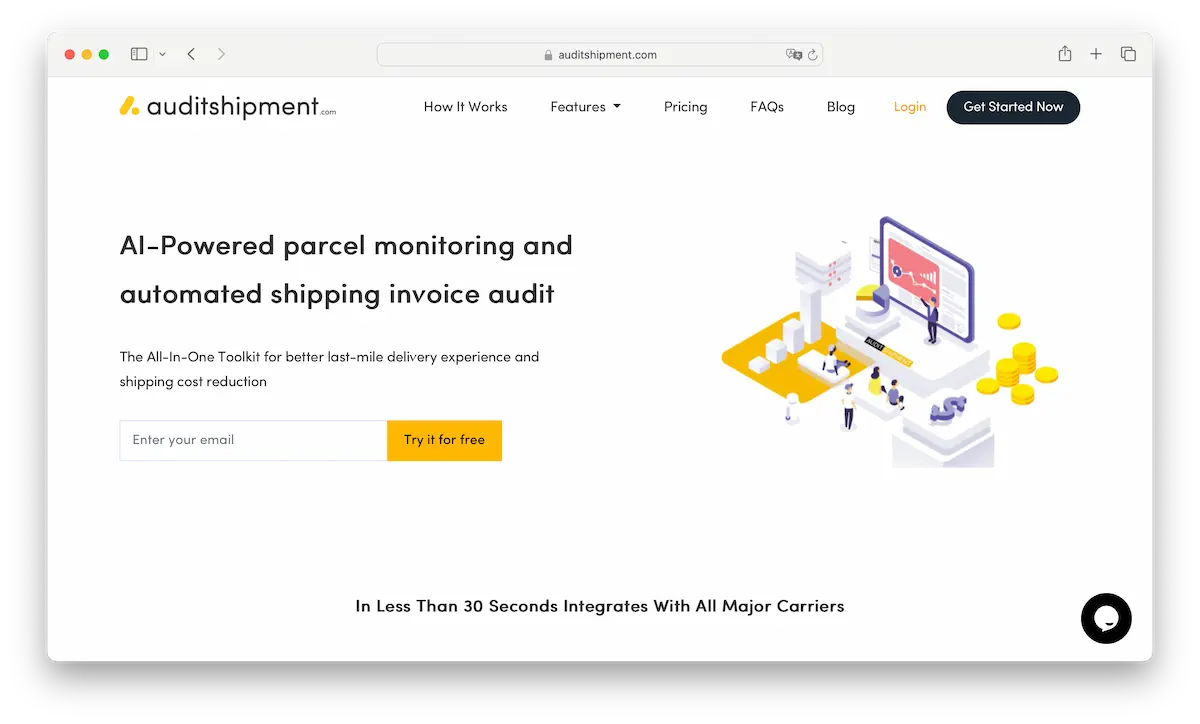 How to choose the right type of logistics intelligence software
How to choose the right type of logistics intelligence software







